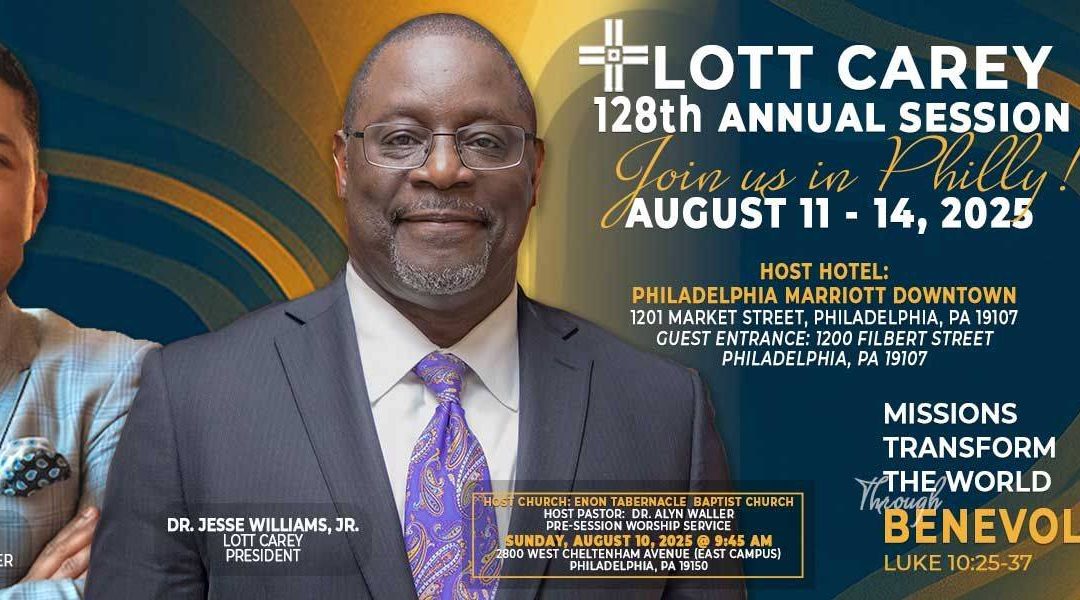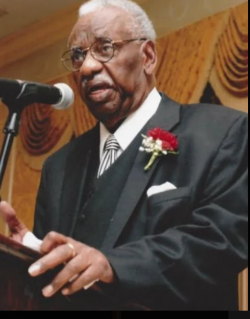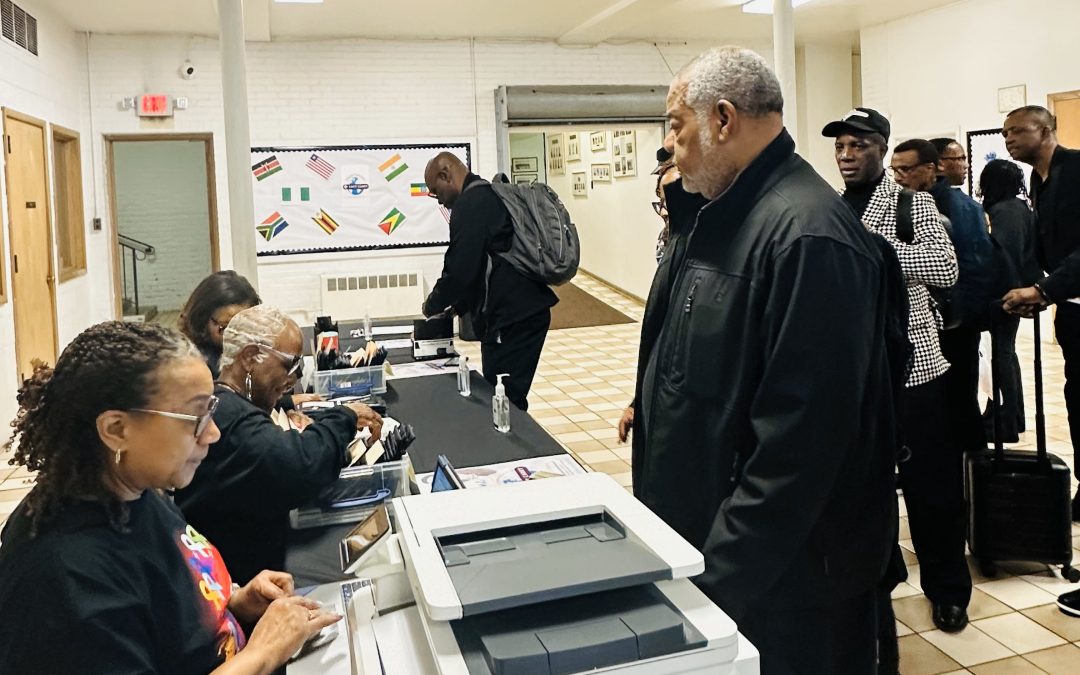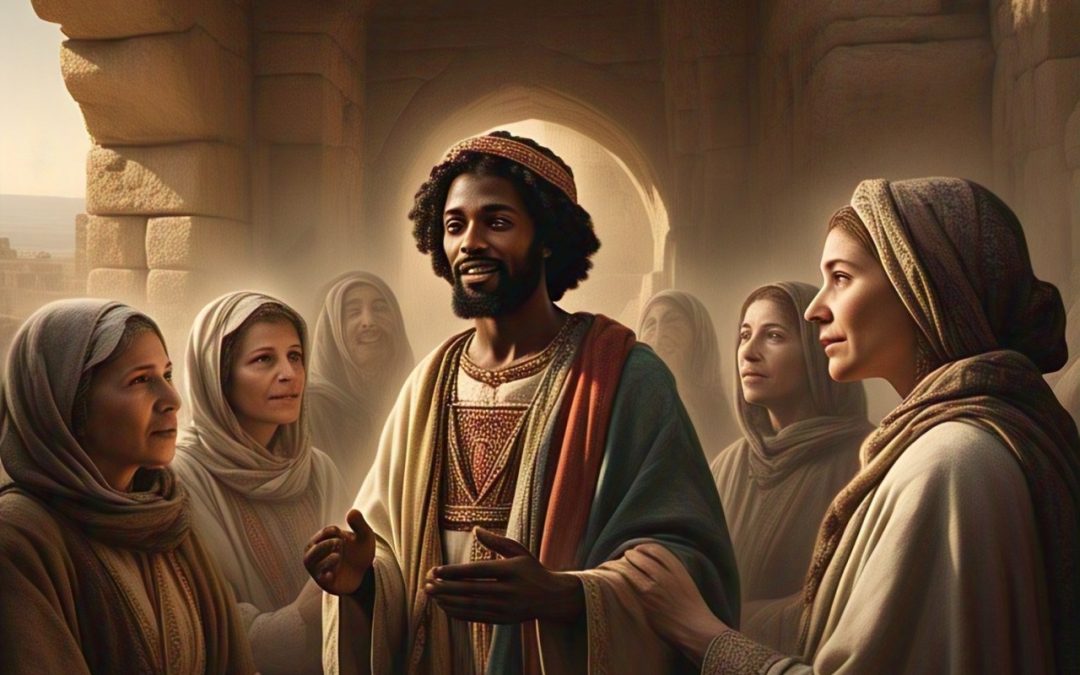
by Eron Henry | Jun 19, 2025 | News, News
Registration is now open for the 128th Lott Carey Annual Session, and we are excited to welcome you to Philadelphia, Pennsylvania, from August 11–14.
An extra day, August 15, is for those who wish to participate in the annual golf tournament.
This year’s gathering marks the beginning of another chapter in our shared mission journey, launching a three-year vision under the theme “Missions Transform the World through Benevolence,” drawn from Luke 10:25–37.
We invite you to join us in exploring the pillars of benevolence, empowerment, and advocacy—anchored in faith and driven by purpose.
This in-person experience will be filled with vibrant worship, transformative witness, and deep engagement. Attendees will participate in morning prayer gatherings, CommUNITY sessions with Women in Service Everywhere (WISE) and SpeakMen (Men on Missions), mission education studies, and hands-on service opportunities. Morning and evening worship will be led by dynamic preachers and gifted psalmists, creating sacred moments of inspiration and renewal. Children and youth will also have dedicated programming, ensuring that every generation is included in this meaningful experience.
Special events will include a Pre-Session Worship Service at Enon Tabernacle Baptist Church, a Worship Arts Concert, an Evening of Jazz, a Golf Tournament supporting international education, and the Missions’ Luncheon featuring voices from our global partners.
The Lott Carey team, alongside our local host partners in Philadelphia, has been working diligently to make this Annual Session a memorable and impactful experience.
We sincerely apologize for the inconvenience caused by the recent technical difficulties with the Lott Carey website. We are pleased to share that those issues have been fully resolved, and one can access the registration system through the Lott Carey website. We appreciate your patience and understanding during this time.
Now is the time to secure your spot and make your hotel reservations. Join us in Philadelphia for this historic moment in the life of the Lott Carey family. Your presence will help shape the future of our mission efforts and set the tone for this exciting new season.
We can’t wait to see you in Philadelphia. Click here to register.

by Eron Henry | May 21, 2025 | News, News
The Lott Carey global mission community is calling on its members and partners to respond with compassion and urgency to the devastating tornadoes that struck St. Louis on May 16. This disaster has left a trail of destruction across neighborhoods, claiming lives, displacing families, and damaging homes, churches, and community centers.
The EF3 tornado that tore through the city caused more than one billion dollars in damage. More than 100,000 residents lost power, and at least five lives were lost in the storm. Entire communities are now facing the long road to recovery, with many in urgent need of shelter, food, medical care, and emotional support. Tornados affected other areas taking the lives of many and causing widespread damage.
In the spirit of our mission to extend Christian witness through acts of service and solidarity, Lott Carey encourages its members to take action. We ask that you lift up the people of St. Louis in your prayers. Pray for comfort for those who are grieving, strength for those who are rebuilding, and wisdom for leaders guiding the recovery.
In addition to prayer, monetary donations are the most effective way to support relief efforts. We urge you to contribute to Lott Carey in its compassionate response.
We also encourage you to spread the word within your networks. Encourage others to support the recovery efforts and to stand in solidarity with our brothers and sisters in St. Louis.
Lott Carey stands with the people of St. Louis. Together, we can be a source of healing in this time of great need.

by Eron Henry | May 1, 2025 | News, News
The Lott Carey Baptist Foreign Mission Convention joins the broader faith community in mourning the passing of Rev. Dr. Gus Roman, former President of Lott Carey and a towering figure in the global Church. Dr. Roman transitioned from labor to reward on April 23, leaving behind a rich legacy of leadership, prophetic witness, and global impact.
Rev. Dr. Roman served Lott Carey with distinction, bringing visionary leadership and a passionate commitment to global missions, justice, and pastoral excellence. His contributions to the growth and reach of the Convention were both transformational and enduring. As President from 1997-2000, he helped amplify the voice and work of Lott Carey across Africa, the Caribbean, and other parts of the world.
In celebration of his life and legacy, Lott Carey will be officially represented at his Service of Triumph by:
- Rev. Emmett L. Dunn, Executive Secretary-Treasurer
- Rev. Gregory Jackson, Chairman, Board of Directors
- Rev. Dr. Clifford A. Jones, and Rev. Dr. J. Michael Sanders, former Lott Carey presidents
Alongside an array of other Lott Carey leaders and partners.
“We give thanks to God for the life and service of Dr. Roman,” said Executive Secretary-Treasurer, Rev. Dunn. “His voice called us to a higher standard, and his life modeled servant leadership rooted in justice, compassion, and conviction. He will be deeply missed but never forgotten.”
Service Arrangements:
Public Viewing
Thursday, May 8, 2025
11:00 AM – 7:00 PM
Zion Baptist Church
3600 N. Broad Street
Philadelphia, PA
Celebration of Life Service
Friday, May 9, 2025
Viewing: 9:00 AM – 10:00 AM
Service: Immediately following
Salem Baptist Church of Abington
2741 Woodland Road
Abington, PA
Livestream available via Salem’s website
Interment
Friday, May 9, 2025 – 2:00 PM
George Washington Memorial Park
80 Stenton Avenue
Plymouth Meeting, PA 19462

by Eron Henry | Apr 28, 2025 | News, News
Lott Carey is thrilled to announce its 128th Annual Session, scheduled to take place from August 11-14. This year, the event will be held at the Philadelphia Marriott Downtown Hotel in Pennsylvania. Host church is the Enon Tabernacle Baptist Church under the esteemed leadership of Rev. Dr. Alyn E. Waller, Senior Pastor.
The Lott Carey Annual Session is a significant gathering that unites mission-minded individuals, churches and organizations from various countries. It is a time dedicated to fellowship, worship, learning, and strategic planning to further the mission of spreading the gospel and serving communities worldwide.
Attendees can look forward to inspirational worship services led by dynamic speakers and musicians, educational workshops designed to equip participants with tools and knowledge for effective ministry and mission work, and numerous networking opportunities to connect with fellow attendees, mission partners, and leaders in various fields. Additionally, there will be special sessions and activities tailored for youth and children to inspire and educate the next generation of mission leaders.
To ensure a comfortable stay during the event, attendees are encouraged to make hotel reservations at the Philadelphia Marriott Downtown. This hotel provides excellent amenities for guests. Attendees can book their rooms directly through the hotel’s website or contact the hotel for assistance with reservations by calling 877-212-5752.
Attending the Lott Carey Annual Session is an opportunity to be part of a transformative experience that empowers individuals, churches and organizations to make a meaningful impact in their communities and beyond. Whether you are a seasoned mission worker or new to the field, this event offers valuable insights, inspiration, and connections that can enhance your ministry and mission efforts.
Don’t miss out on this incredible opportunity to join fellow believers in worship, learning, and mission planning. Make your hotel reservations today at the Philadelphia Marriott Downtown to ensure a comfortable and convenient stay during the event. For more information about the Lott Carey 128th Annual Session and to register for the event, please visit the official Lott Carey website at lottcarey.org.
We look forward to seeing you in Philadelphia for a week of inspiration, fellowship, and mission-focused activities!

by Eron Henry | Apr 20, 2025 | Lent 2025
Historical evidence suggests Christianity’s foundational claim —”He is risen!”—emerged remarkably early in the church’s existence. Within mere years of Jesus’ crucifixion, the resurrection had already become the central tenet of Christian faith and the primary explanation for the movement’s explosive growth.
In Paul’s first letter to the Corinthians, written around 20 years after Jesus’ death, he references a creedal formula that he himself had “received” and then “passed on” to the Corinthian believers (1 Corinthians 15:3-5). Scholars widely recognize this passage as pre-Pauline, reflecting a formulation that circulated among the earliest Christians. Its structured language and non-Pauline vocabulary suggest it originated within the first few years following Jesus’ death.
This early testimony is striking not only for its chronological proximity to the events it describes but also for its content. The resurrection is presented not as a later theological development or metaphorical construct, but as a concrete historical claim with named witnesses. These witnesses included both individuals (Peter, James) and groups (“the Twelve,” “more than five hundred”), many of whom were still alive when Paul wrote.
Women’s testimony also features prominently in the Gospel accounts, a detail unlikely to be invented in a patriarchal society where female testimony carried less weight. This “criterion of embarrassment” suggests these narratives preserved authentic early traditions rather than later idealizations.
The resurrection announcement transformed a group of demoralized followers into bold proclaimers willing to face persecution and death. What explains this radical shift if not their genuine conviction that they had encountered the risen Christ? Alternative explanations—mass hallucination, deliberate fabrication, metaphorical interpretation—struggle to account for the historical data surrounding Christianity’s explosive emergence.
What makes this early testimony particularly significant is that it emerged in a Jewish context where resurrection was understood as bodily and within history, not merely spiritual or metaphorical. The first Christians were not proclaiming a comforting philosophy but testifying to what they believed was an unprecedented divine intervention that changed everything.
Prayer
Faithful God of History,
We thank You that the resurrection proclamation is no late invention but the very heartbeat of faith from its beginning. When Your Son rose from the tomb, the testimony spread quickly among those who had walked with him, spoken with him, and touched his wounds.
We are humbled to stand in this ancient stream of witness, echoing words first spoken by women at an empty tomb and by apostles in Jerusalem’s streets. Their courage to proclaim what they had seen, despite persecution and doubt, has brought the good news of resurrection to us across centuries and continents.
Forgive us when we treat Easter as merely symbolic or reduce it to springtime sentiments. The earliest believers staked their lives on this reality that You had defeated death in Jesus Christ and inaugurated a new creation.
Grant us the same conviction that transformed frightened disciples into bold witnesses. May we, like those first believers, find our courage, purpose, and hope in the risen Christ. Help us to proclaim with our lips and demonstrate with our lives that the One who was crucified now lives and reigns forever.
In all our doubts and questions, remind us that our faith is anchored not in clever myths or comforting philosophies, but in testimony preserved from those who saw, touched, and encountered the risen Lord.
Through Jesus Christ, whose resurrection has been faithfully proclaimed from generation to generation, we pray.
Amen.






Recent Comments